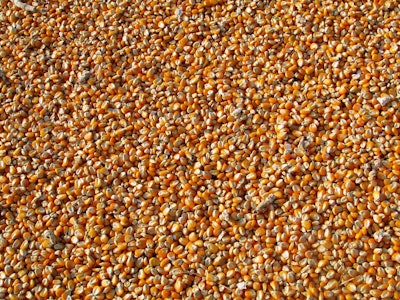
A pilot project in Monterrey, Mexico, has demonstrated significant cost savings and emission reductions from using E85 fuel in taxis, potentially signaling increased demand for U.S. grains for bioethanol production if adopted more widely. The E85 Pilot Project, conducted under a Memorandum of Understanding between the Nuevo León State Ministry of the Environment and the U.S. Grains Council (USGC), highlighted both financial and environmental advantages of the high-level ethanol blend.
Over six weeks, 10 taxis converted to Flex Fuel technology and utilized E85, a blend of 85% bioethanol and gasoline. Key findings from the project include:
- Operating cost reduction: More than 2 Mexican pesos per mile.
- Annual emission cuts per taxi: Between 4.9 and 6.4 tons of carbon dioxide equivalent.
- Projected lifespan savings per vehicle: Up to 19,230 Mexican pesos. The vehicles traveled more than 43,000 miles and consumed over 1,500 gallons of E85 during the trial.
“This program showcased the benefits of biofuels for transportation and how they can be a solution for Mexico to reduce polluting emissions,” said Heidi Bringenberg, USGC director in Mexico. “The clear financial and environmental benefits laid out through the trial prove ethanol’s viability and availability in Mexico and beyond.”
Analyses conducted by the Mexican Petroleum Institute (IMP) reinforced the pilot project’s results. The IMP indicated that E85 use in Tier 1 Flex Fuel vehicles reduces key emissions, including carbon monoxide, nitrogen oxides, particulates, and toxic compounds such as benzene and 1,3-butadiene. These reductions significantly outweighed recorded increases in methane, formaldehyde, and acetaldehyde.
The study projects that if just five percent of the vehicle fleet in Nuevo León adopted E85, the state could mitigate 148,000 tons of carbon dioxide annually and achieve savings of up to 375 million Mexican pesos. Beyond being an alternative fuel, E85 is seen as a catalyst for developing a new national agroindustry in Mexico based on sugarcane and sorghum for bioethanol production.
“I’m eager to see the Mexican energy and transportation sectors react to this study and how it will spur investments in a new agroindustry in the country,” Bringenberg stated. “With U.S. agriculture already enjoying a close relationship with Mexico, its top export market, any increase in biofuel consumption translates to significant demand for U.S. producers to meet.”















